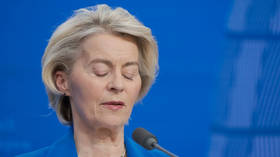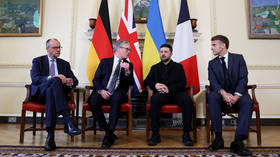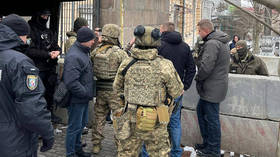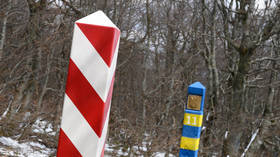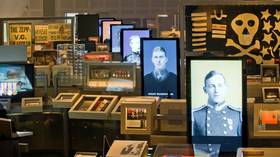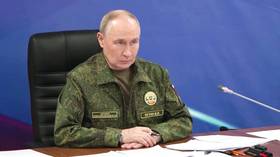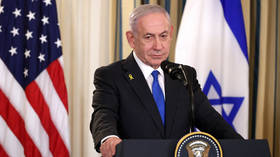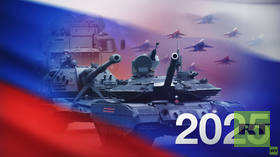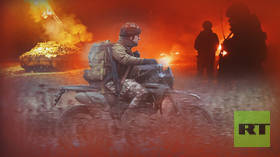End of counter-terrorism regime in Chechnya
The National Antiterrorism Committee has officially ended the antiterrorism regime in the Chechen Republic launched a decade ago.
“At midnight Moscow time on April 16 the order naming the Chechen Republic's territory a zone of counter-terrorism operation was cancelled," Russian National Antiterrorism Committee (NAC) said in an official statement, Ria Novosti news agency reports.
Chechnya’s President Ramzan Kadyrov has welcomed the decision and said that the republic will be marking April 16 as a holiday from this year on.
“We were waiting and hoping that the decision on this issue will be positive, as aims and goals of the counter-terrorism operation in Chechnya have been achieved in full. It is a great joy for both Russian and Chechen peoples.”
Kadyrov believes the cancellation of the antiterrorism operation will help boost the region’s economy.
Ziyad Sabsabi, representative of the Chechen Republic to the Russian president, said Chechnya will definitely benefit from the lifting of the counter-terrorism regime.
“What will this give us? There were a lot of limitations on the Chechen territory, special regulations for foreign citizens and journalists entering and leaving the region. The international airport in Grozny was closed. Now we will have customs and everything. This will also give us the opportunity to bring in investors,” Sabsabi said.
Russian officials say that the decision is timely as the situation in the republic is different now.
“The situation has changed. The military part of the operation was over but the restrictions have remained,” said Gennady Gudkov from Russia's State Duma. “Of course it was slowing down economic development and also the residents were unhappy with it. They were living on Russian territory, with equal rights and opportunities as Russians, but they didn’t feel they were equal.”
Some acknowledged that the new reality will bring new problems.
“The decision has its good side and bad sides,” said Duma deputy Aleksandr Khinshtein. “The bad side is that it will be difficult to find policemen who would like to work there. When there is an antiterrorism regime, they are paid extra money there, and now they won’t be.”
The Russian Republic of Chechnya is well on the road to putting the dark days of conflict behind it. Restoration works are in full swing in the Chechen capital, and it is hard to believe two years ago the city was in ruins.
The republic’s president Ramzan Kadyrov has managed to bring peace to the republic, but social problems still exist. More than 50% of the republic’s population is unemployed. President Kadyrov says he wants to create job opportunities.
The authorities admit that the operation was keeping away possible investors, never mind Chechens living abroad.
“People, including investors, get scared when they read on the Internet a counter-terrorism operation is underway in Chechnya. Rich people always look for quiet places without problems, where their business will be well-protected. If the counter-terrorism operation regime is lifted, it would be easier for us to rebuild the economy, to create jobs”, says the president.
(You can find full version of the interview with the President of the Chechen Republic Ramzan Kadyrov here)
The counter-terrorist operation was launched some ten years ago, after a group of militants from Chechnya intruded in the neighbouring republic of Dagestan. They proclaimed an Islamic state on the territory of the two republics, which resulted in riots in Dagestan and a second campaign against militants in Chechnya.
Military expert Viktor Litovkin says the situation in Chechnya has become more or less stable:
“Law enforcement agencies are stronger now. The leadership of the Chechen Republic is eager to establish ties with the outside world, but it is difficult under the counter-terrorism operation regime”, explains the expert.
An airport in the capital Grozny used to serve international flights ten years ago, but now it’s for domestic traffic only. Due to the ongoing counter-terrorism alert, there is no customs service in the republic.
“It is inconvenient, because currently you have to go someplace else, pay extra, get approvals from various government agencies”, says Grozny resident Ramzan Digayev.
Food and goods in Chechen shops are more expensive than elsewhere in Russia, because many supplies must come from other regions. The anti-terrorism measures posed difficulties here too, as everything crossing the Chechen border had to be checked and documented. Although the Kremlin has lifted the measures, the security situation will continue to be monitored as militants may remain in mountainous regions.
The Chechen president claims his republic is one of the quietest regions of Russia. The experts agree – his policies brought relative peace to this area, but that has led to the violence being exported to the neighboring republics. While defeated here, the Islamist militants found shelter in Ingushetia and Dagestan, which became the new arenas of counter-terrorism operations.
Looking back
In summer 1991, during the final months of the Soviet Union, the so-called Nationwide Conference of Chechen people proclaimed that Chechnya will secede from the Chechen Ingush republic of the Russian Federation to become an independent state called the Chechen Republic.
It was said that from that moment the highest agency of State power became an Executive Committee headed by the ex-Soviet general Dzhokhar Dudayev. The general created an effective unit of guards which helped him to remove Soviet authority and seize power in the republic on September 5, 1991.
Being elected the president on October 27, 1991, Dudayev issued a decree thus creating the Chechen Republic of Ichkeria.
The collapse of the Soviet Union made it impossible to do anything to stop a territory with a population of over a million citizens from becoming a black hole criminal zone with no laws, no courts and no police. And it was the Russian economy that was supposed to cover expenditures of the newly created state.
There were armed robberies of trains and trucks passing through Chechnya, as well as financial fraud taking place on the territory of Russian Federation, causing the loss of hundreds of billion of roubles. Chechnya became a territory where any criminal could find a safe haven without the risk of being arrested.
Ethnic cleansing was not something unknown to Ichkeria as non-Chechens fled from the lawlessness of the once multinational republic. In 1989 ethnic Russians made up 23% of the population (some 270,000), but now there are little more than 40,000.
Three years of outrage led to an armed revolt by the Chechen opposition. After they failed to supersede Dzhokhar Dudayev in November 1994, the Russian military stepped in to re-establish a constitutional system on the territory of the Chechen Republic.
First Chechen Campaign
The first campaign in Chechnya started on December 11, 1994 and lasted for two whole years. Militants chose terror tactics and made several raids on the towns of other Russian regions, killing police officers, military servicemen, taking hostages and using them as human shields in order to get back to Chechnya. The most notable act of terrorism was in the Russian city of Budyonovsk in 1995, when terrorists seized control of a hospital, holding more than 1500 people, and a raid in the Dagestani town of Kizlyar in 1996, where over 3000 people were taken hostage.
On April 21, 1996 Dzhokhar Dudayev was eliminated by a guided missile shot from a Russian fighter jet. Yet, that still forced Russian President Boris Yeltsin to announce a ceasefire and later on sign a peace agreement that took the Chechens’ conditions into account.
The end of the campaign saw the Chechen economy in chaos. The infrastructure was destroyed and all the funds that Moscow allocated for the reconstruction of the Chechen capital Grozny and the republic itself were boldly divided among warlords. Kidnapping became a flourishing multimillion business.
Second Chechen Campaign
After the Al-Qaeda-connected Islamic International Peacekeeping Brigade made an assault on Dagestan Republic Russian aviation forces bombed several terrorist bases in Chechnya.
The situation was aggravated by a series of bloodcurdling acts of terror in Moscow, Volgodonsk and Buinaksk, where multiple-apartment buildings were blown up at night time causing hundreds of deaths, but that only determined the Russian army to make the ranks closer. After a number of massive air strikes the ground military operation against Chechen militants in October 1999 marked the beginning of the Second Chechen Campaign.
The Russian army methodically cleaned up one locality after another and re-captured the capital of the Chechen Republic Grozny in February 2000. By October the active phase was over, but due to perpetual terrorist attacks it was not until April 18, 2002, that then Russian president Vladimir Putin officially announced that the campaign in Chechnya was over.
Counterterrorism operation
According to the Russian Counter-Terrorism Act of 2006, a counterterrorism operation is a complex of measures that allows police and army to impose a special regime on certain territories and the use of military force and combat equipment to counteract terrorism… which is exactly what was been going on in Chechnya over past years. Hundreds of terrorist acts have claimed hundreds of lives in Chechnya and other Russian regions.


